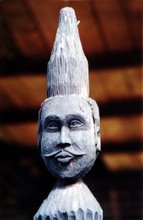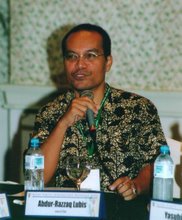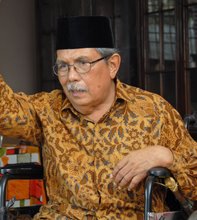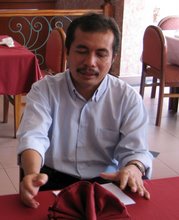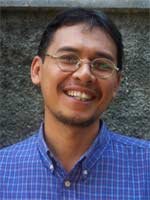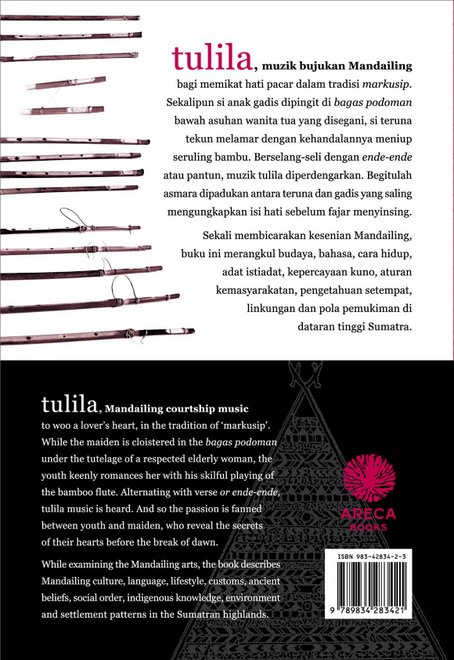 Gordang Sambilan performance at the Penang Festival
Gordang Sambilan performance at the Penang Festival Permainan Gordang Sambilan di Pesta Pulau Pinang
Foto Khoo Salma Nasution
Ramadan in Sumatra: The Magical Music in Odd Numbers
For most of this month, Muslims around the world are observing Ramadan, their holy month of fasting and prayer. Because Ramadan is a month in a lunar calendar, it falls at a different time each year in the Western calendar.
Among the Mandailing people in the Indonesian state of Sumatra, the final days of Ramadan are celebrated with the joyous sound of a sacred traditional ensemble called the gordang. A gordang is made up of drums, gongs, cymbals and flute, and always includes an odd number of drums, because the Mandailing regard odd numbers as magical. A gordang with five drums is played in a ceremony to cure disease, to ask the spirit of an ancestor to enter the shaman and make him clairvoyant so he can understand why the person is sick. A three-drum ensemble may be played at a funeral.
The Mandailing consider nine, or "sembilan" in their language, to be the most magical number, and the gordang sembilan, with nine drums, is reserved for the most important occasions. In the past, the gordang sembilan could only be played for certain royal ceremonies -- to celebrate a noble marriage, the funeral of a raja, or king, or the death of a tiger, the animal considered to be the king of the jungle. After many of the Mandailing people converted to Islam in the 19th century, it became customary to play the gordang sembilan to celebrate the final days of Ramadan.
The Mandailing are primarily farmers, growing rice, cinnamon, coffee and rubber. During years of Dutch rule in Sumatra and later occupation by Japan, Mandailing culture underwent changes, and some say that valuable traditions were lost. But in recent years, the Mandailing have made efforts to preserve their unique cultural heritage -- especially their sacred music. They now play the gordang sembilan not only at Ramadan but in musical performances and competitions, finding artistic expression in what was once a purely sacred ritual.
Our thanks to anthropologists Zainudin Pangaduan Lubis and Peter Zabielskis.
http://www.pulseplanet.com/feat_archive/Dec00/index.html
